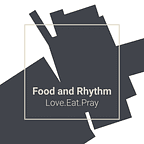A Historical Analysis of the Relationship Between Food and the Gods
Introduction:
One of the most intriguing facets of civilization that have spanned the centuries involves the underlying relationship between sustenance and spirituality. More precisely, the ways in which various foods are associated with gods and other divine entities. This link is a testament to societies’ attempts to understand and connect with the celestial realm via tangible, earthly means. In essence, food is the conduit through which the spiritual and human realms engage, offering a fascinating symphony of cultural, religious, and historical narratives.
Connecting Food and the Divine:
Ancivalence, reverence, bribery, or acts of appeasement, foods in offerings took a pivotal role in religious ceremonies and rites. From the ancient Egyptians’ dedication of bread and beer to Isis, to the Romans offering wine and sacrificial animals to Jupiter, a pattern emerges demonstrating the recognition of food as an effective language to confer with gods.
Notably, the cultural significance of certain foods is tied to specific deities. In Greek mythology, for instance, the pomegranate holds symbolic value relating to the myth of Persephone, Hades, and Demeter. Representing life, fertility, and resurrection, the fruit further underscores the bond between earthly sustenance and divine entities.
An analysis of Hindu traditions provides a different perspective. Foods such as dairy products, sweets, and fruits, are utilised in prayer rituals (puja) to Indian deities. The reason for this transcends mere tradition. It is believed that the gods imbibe the food’s spiritual essence, leaving the physical part to be consumed by the devotees as ‘prasad’. The act of consuming prasad embodies the absorption of divine energy, further forging the bond between gods and worshippers.
The Role of Food in Ancient Civilisations:
Emanating from prehistoric eras, our ancestors used natural resources to express devotion to certain entities they believed controlled their lives. The ancient Egyptians and Mayans, for instance, used food offerings as integral components in burial rituals, intended to nourish the deceased’s spirit in the afterlife. This depicts the relationship between food and gods as not merely circumscribed to this earthly life but extended into perpetual existence.
In the land of the rising sun, Japan, Shinto followers utilise food to pledge their respect to ‘Kami’ or spirits, harmonising nature and humanity. During the New Year ceremony, sake, rice cakes, and cooked vegetables are offered at the household altar as an appreciation of Kami’s blessings.
In ancient Rome and Greece, food was an essential element in public religious ceremonies. Besides personal offerings, grand public feasts were held where sacrificial meat was cooked and distributed among the populace, ensuring that even the lower social classes were included.
Fasting and Feasting: An Intangible Relationship:
The dichotomy of fasting and feasting offers another vista into the connection between divinity and food. Hindu believers fast during festivals like Navaratri, fostering powerful spiritual contemplation, followed by grand feasts, a celebration of divine benevolence. In Islam, the holy month of Ramadan progresses from intense fasting to exuberant feasting, a cycle emphasising the divine’s omnipotent role in life’s sustenance. This oscillation represents an acknowledgment of divine authority, cementing the link between food and the gods.
Further, these practices encourage social harmony, fostering a sense of community — all partaking in the same rituals, cementing society’s fabric and synchronising collective consciousness with divine rhythms.
Conclusion:
The historical relationship between food and gods manifests an intriguing convergence of spiritual and earthly domains. Throughout the ages, food played a pivotal role in bridging man’s worldly existence to the ethereal divinity. Whether through offerings, fasts, or feasts, food consistently served as a crucial component of religious rites, ceremonies and spiritual practices.
This relationship was not static throughout history but evolved dynamically with changing cultural tides. Today, it continues to evolve, adopting new forms and symbolisms, yet its root resides deep within the ancient traditions that recognised food as the tangible connection to the gods. This enduring relationship is more than a testament to historic practices. It reflects humanity’s ceaseless quest for a spiritual connection, embodying our innate need to link the physical and spiritual realms. Offering food to deities reaffirms our dependence on the divine for life’s sustenance, emphasising that both spiritual nourishment and physical nutrition are sourced from the gods’ benevolence.
In essence, food is not merely a material that sustains human life, but a medium through which individuals and communities express their gratitude, dedication and connection with the celestial realm. Invoking the divine through offerings, fasts and feasts, man, food, and God are bonded in a sacred triumvirate, an eternal testament to our existential quest for ecumenical sustenance and spiritual fulfilment.
